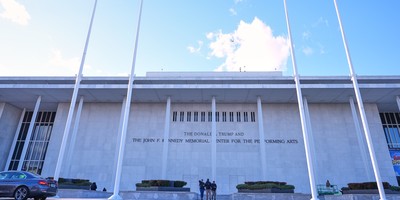Over the past few months, Congress has turned their attention to an issue called “surprise” medical billing. This term may come as a “surprise” to some but it has two distinct meanings: individuals who received pre-arranged treatment at an in-network hospital, but saw an out-of-network physician; or individuals who had to seek care at an out-of-network hospital during a medical emergency.
With regard to both distinctions, out-of-network providers are able to “balance bills” for patients under the current system. This means that out-of-network providers can send patients an invoice for the difference between an insurer’s in-network payment and what the physician actually charged. Given that these bills are often quite large in sum, and patients do not have the ability to intervene when a medical emergency happens –– Congress thinks they should intervene.
However, like most federal solutions within the healthcare sector, it may cause more harm than good.
The problem of “surprise” bills largely occurs when a hospital decides to outsource their emergency room physicians or anesthesiologists to physician staffing services. Those staffing services have no reason to contract with insurance networks, thus creating a problem for patients since patients have little ability to decline treatment at the time of care and who is administering that care. Therefore, those staffing services can obtain much higher payments by remaining out-of-network and then billing patients for the difference after care is administered.
However, the vast majority of hospitals do not have this problem according to an analysis done by The New York Times. The New York Times stated in their analysis that “surprise” bills are applied to approximately 22 percent of ER visits. The New York Times even noted that these “surprise” bills are “not happening to some random set of patients in every hospital. [They’re] happening to a large percentage of patients in certain hospitals.”
Recommended
This analysis highlights how the hospital industry as a whole should have done a better job at regulating themselves to encourage keeping their doctors in-network while discouraging out-of-network staffing services that covertly drive up costs for patients.
Rather than a one size fits all solution, the federal government should allow the states to come up with their own innovative solutions to this “problem” that is cost-effective for patients and reasonable policy for hospitals to adhere to. Several states have already enacted legislation on this issue, thus providing a precedent for a non-federal solution.
Furthermore, establishing a federal solution to regulating prices of healthcare services within private insurance plans, progressive Democrats could use this type of policy as a precedent to advocate for a single-payer type of healthcare regime that would push for similar price controls but on a much larger scale.
Both the House Energy and Commerce Committee (E&C) and Senate Health, Education, Labor, and Pensions Committee (HELP) have introduced proposals that would engage in federal price-fixing for “surprise” billing.
Republicans who support federal price-fixing with regard to “surprise” billing used to be the party of small government and free markets. If they support price controls in the private commercial healthcare marketplace, these Republicans would be in lockstep with radical, progressive Democrats who are pushing towards big government solutions within healthcare. A lose, lose for patients.
It goes without saying that the recent push for socialist price controls by some Republican members of Congress is alarming. The goal of lowering healthcare costs should be done within a free market framework, not a draconian regulation of mandating prices via government intervention for all healthcare services. If the push for single-payer comes to fruition, the quality of care would go down the drain and force patients to suffer.
























Join the conversation as a VIP Member